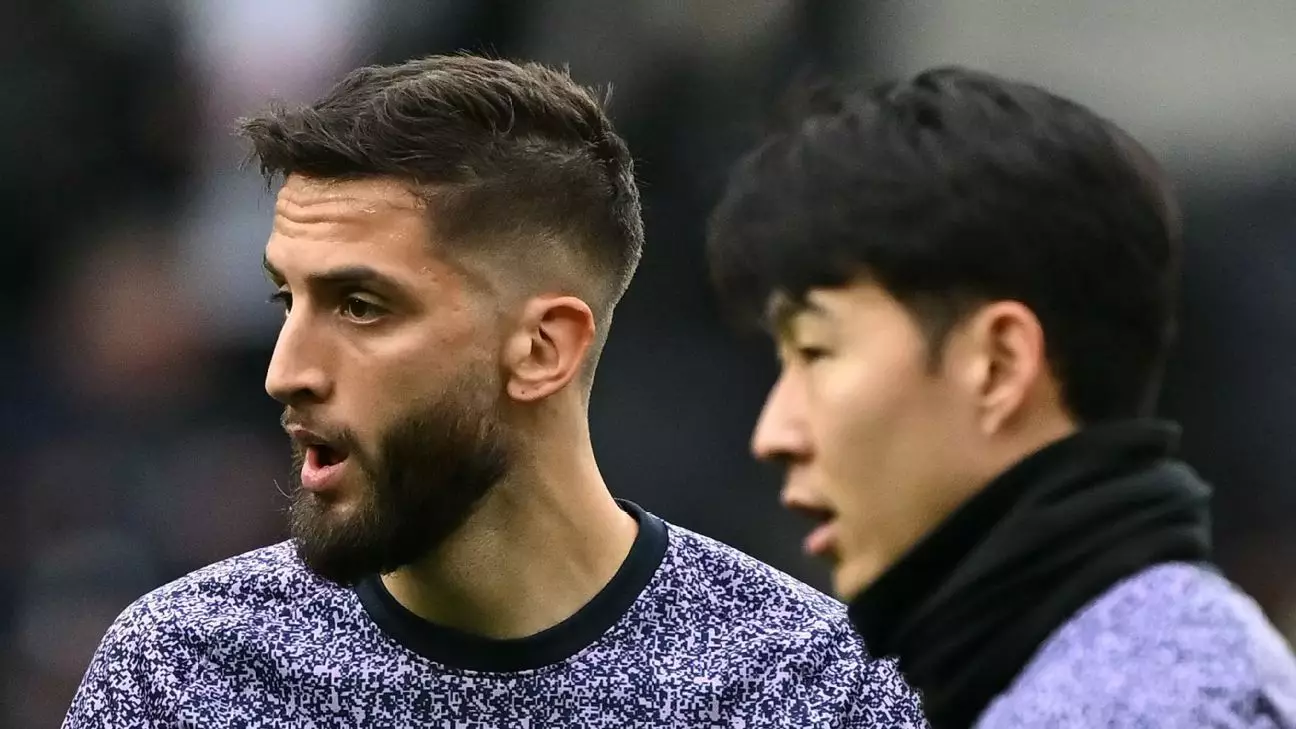The recent ban imposed on Tottenham midfielder Rodrigo Bentancur highlights the sensitive nature of racism within sports and the distinct balance between accountability and understanding. An incident during an interview on a Uruguayan television program led to Bentancur making comments that were perceived as racially insensitive. Although he quickly apologized, the repercussions were significant, with the Football Association (FA) handing him a seven-game suspension and a hefty fine. This outcome underlines the serious stance that governing bodies are taking against discrimination, while simultaneously raising questions about fairness and the potential for rehabilitation.
The specific comment that sparked this controversy involved Bentancur referring to his teammate Son Heung-Min and suggesting, albeit jokingly, that “all look the same.” Many fans and pundits argued that such phrases perpetuate harmful stereotypes, which is precisely why swift action was needed. The FA’s decision to levy a substantial penalty reflects their commitment to fostering an inclusive environment in football. However, it is essential to question if the punishment level addresses the learning aspect of such a costly mistake.
Manager’s Perspective on Mistakes and Learning
Tottenham’s manager, Ange Postecoglou, has been vocal regarding the need for Bentancur to learn from this incident rather than face extreme ostracism from the community. His comments resonate with a larger conversation about accountability and personal growth. Postecoglou’s philosophy emphasizes the idea that mistakes are integral components of personal development. In a world where public shaming is rampant, he argues that a vital step toward understanding entails giving individuals a chance to realize their errors and grow from them.
This perspective represents a crucial shift towards a more restorative approach to discipline in sports. Postecoglou’s comments reflect an understanding that everyone is susceptible to mistakes. He poignantly recalls his past experiences where he, too, made blunders and benefited from guidance rather than punishment. The goal should not solely be to punish the wrongdoer; it should also include fostering a culture that nurtures insight and improvement. By advocating for education alongside accountability, Postecoglou’s comments serve as a plea for understanding in a society often more eager to condemn than to assist.
The Broader Implications for Football Culture
The case of Rodrigo Bentancur raises critical questions regarding the culture surrounding football. The response from the FA is indicative of a broader societal shift towards zero tolerance of racism and prejudice, demanding both accountability and reform. However, it is necessary to strike a balance between these expectations and the possibility for players to learn from their mistakes without facing irrevocable damage to their careers or reputations.
The debate about Bentancur’s penalty brings forth discussions about proportionality. His situation sheds light on the potential consequences of labels and how individuals belonging to certain demographics are often treated differently within the same frameworks of justice. Antonio Gramsci, an Italian Marxist philosopher, suggested that the “common sense” view often leaves nuances unexamined, leading to blanket approaches that fail to account for individual context.
Just as Bentancur’s actions could lead to public uproar, there are countless instances where similar mistakes arise, but the consequences differ drastically based on one’s social standing, background, or support from their institution. This inconsistency perpetuates a divide and often discourages personal growth from seemingly little infractions.
As the situation evolves, the collective focus should shift towards creating a framework that couples punishment with a clear pathway for education and personal development. This situation could serve as a turning point within football, signaling a proactive approach to inclusivity. Responsibility in sports should encompass more than just facing consequences; it should also involve creating opportunities for dialogue about prejudice and cultural sensitivity.
While the FA’s efforts to combat racism and discrimination are commendable, they must ensure that these policies also incorporate a degree of humanity. A balance must be struck where individuals can own their mistakes, receive appropriate penalties, and ultimately embrace the learning process. The narrative surrounding Bentancur remains important not only for him but also for the thousands of aspiring athletes watching closely, as it underscores the idea that redemption and understanding cannot flourish in an environment solely focused on punishment.

